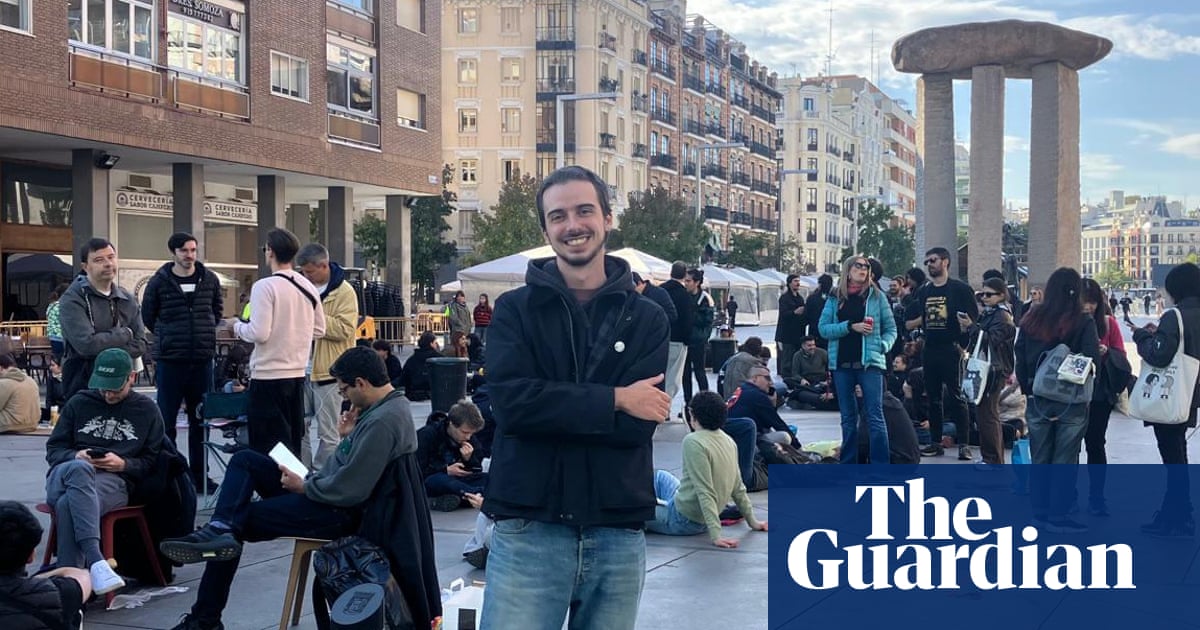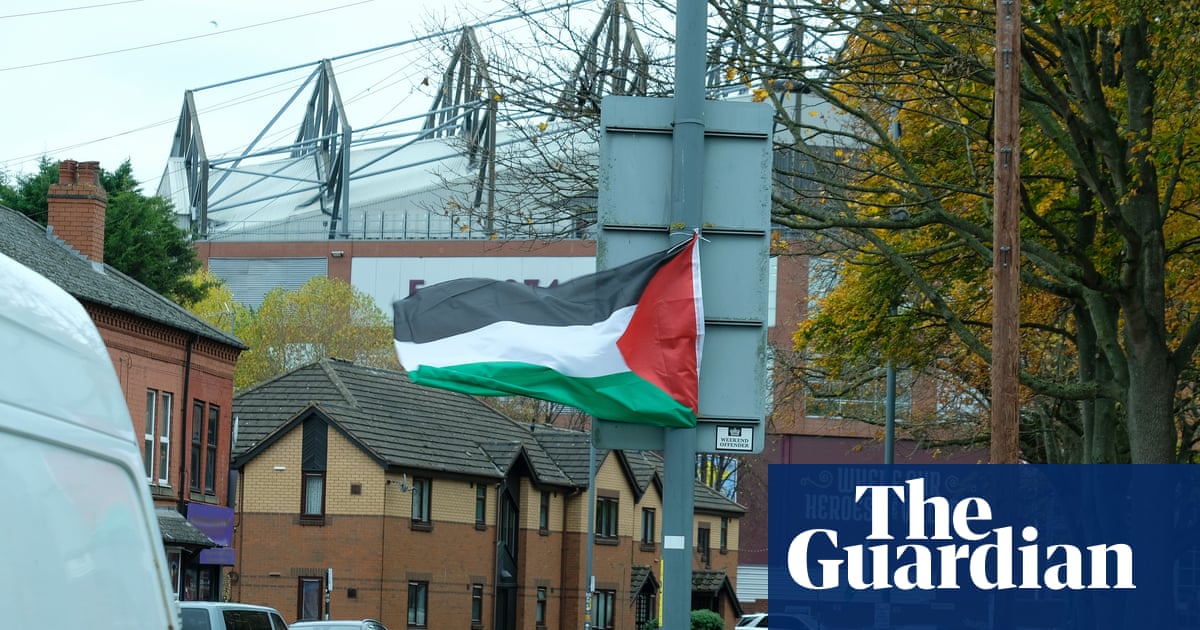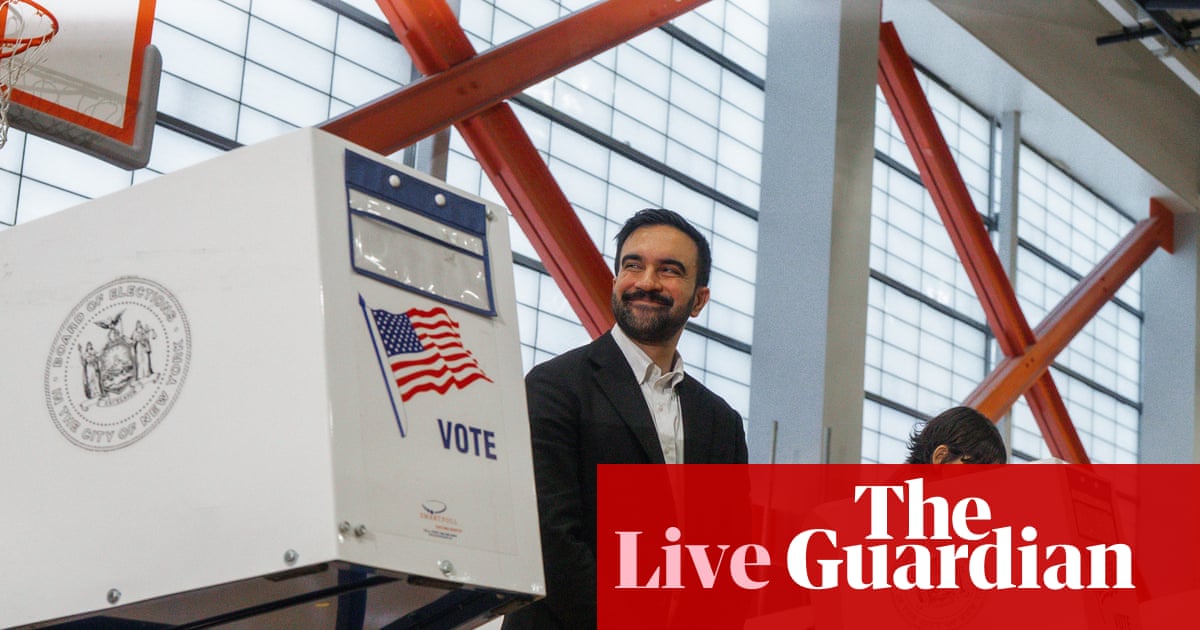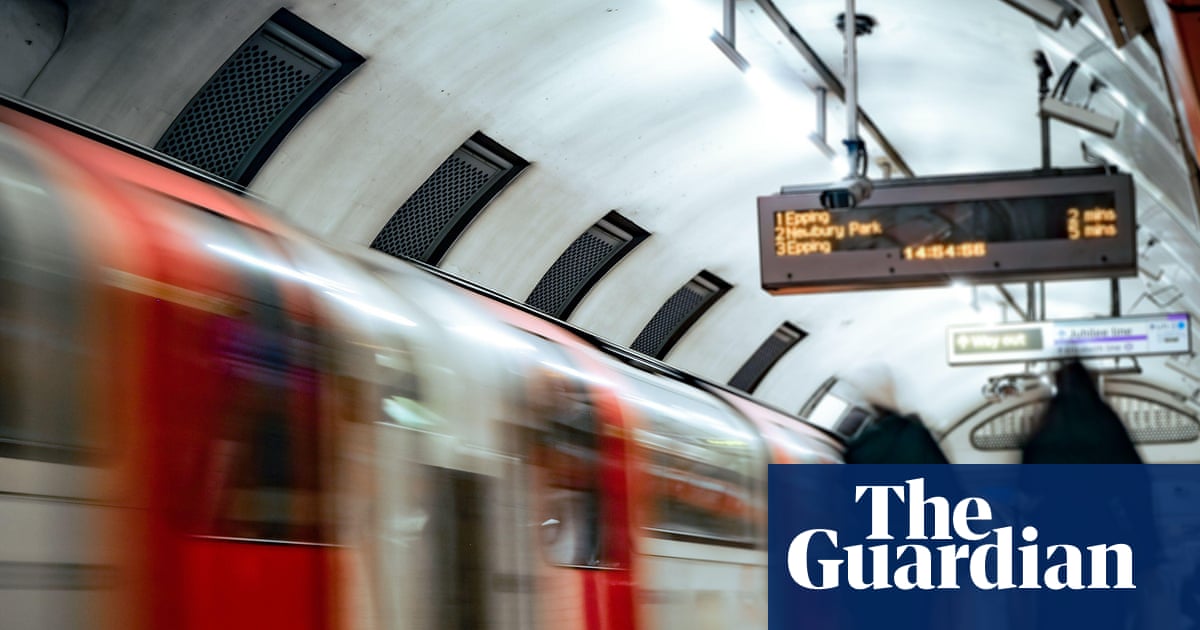Lee James is cowering in the rusting Mercedes Sprinter van he calls home. He is worried sick by the growing campaign to evict van-dwellers like him from historic parkland in the wealthy north-west of Bristol.
“I’m not in the greatest headspace today … I wouldn’t have anywhere to go [if I was evicted] … this is my home,” he said in the gloomy interior. “I just wish there was more kindness.”
Last week, residents from the neighbourhoods surrounding the Bristol Downs, where house prices and average incomes are among the highest in the city, lobbied the Green-led council to remove the 60 to 100 vans and caravans in the park.
There are about 650 live-in vehicles across Bristol, which has been dubbed the van-dwelling capital of the UK. The number of vehicles used as homes has quadrupled over the past five years, with the council estimating that there were only 150 such vehicles in 2019.
Other van-dwelling hotspots include Brighton, Falmouth and Glastonbury. National numbers are hard to gauge as few councils count vehicle-dwellers. But people are thought to be living in vans and caravans in every city in the UK. Torbay last year used private enforcement officers to crack down on van-dwelling encampments.
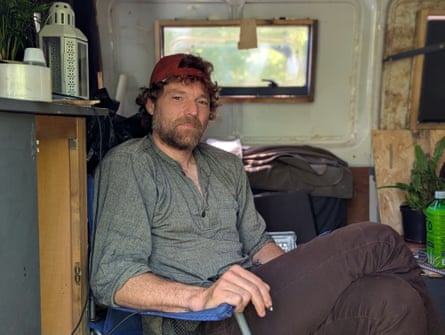
The issue is becoming increasingly divisive in Bristol. Residents have formed a “Protect the Downs” action group and marched through the park. The group addressed a Bristol city council meeting on Tuesday 8 July after more than 8,000 people signed a petition calling on councillors to “remove van-dwelling encampments”.
Tony Nelson, the group’s chair, told a packed public gallery that antisocial behaviour, including defecation in bushes, fighting, assaults, drug dealing and flashing had become a daily occurrence. He even claimed a child was nearly blinded after coming into contact with human excrement. “This is no longer a park. It is a pit of antisocial behaviour,” he said.
Nelson, who is a former RAF officer, urged the council to concentrate van-dwellers on unused sites elsewhere in the city. “We are asking for basic, reasonable measures, enforce the rules that already exist, identify those eligible for support, remove the illegal encampments and restore safety and dignity for our public spaces,” he said.
The council is drafting a new van-dwelling policy, which will be subject to consultation in September. Barry Parsons, the Green chair of the housing committee, told the residents the new approach would support the wellbeing of settled communities and van-dwellers.

James, 45, however, fears that they will be moved on. He has been parked up on the downs since becoming homeless five months ago. He sought help from the council and local charities because he could not afford to rent a room in a shared house, which costs on average more than £850 a month in Bristol. But James, who is a self-employed handyman, said he was told he did not stand a chance of being rehoused.
“None of what [the campaigners] say about us is true. They lump us all together,” said James, who struggles with a range of mental health problems, including anxiety and depression. “I try not to think about [their campaign] too much because it is upsetting.”
The residents’ group accepts that there are some vulnerable, homeless people living in vehicles, but claims it is a lifestyle choice for the “vast majority” of van-dwellers. “The few vulnerable people are outweighed massively by the people who are choosing to live [on the downs],” said Nelson. He added that those priced out of the city should move to towns with lower rents, such as Newport in Wales: “You cannot remove people’s rights to access a family park because you can’t afford a mansion in Clifton.”
after newsletter promotion
The group was unable to provide the Guardian with evidence that a child had nearly gone blind after coming into contact with human waste. Dog, fox and cat faeces carry worm eggs that can cause blindness. Police figures show there has been a 5.7% decrease in recorded crime in the ward covering most of the Downs over the past 12 months.
People live in vehicles for a range of often overlapping reasons. Some van-dwellers cannot afford high rents, while others resent giving most of their meagre income to landlords. Some are escaping street homelessness. Physical and mental health problems are common. Some prefer life on the road.
Research published by the council last year showed the single largest reason to live in a vehicle is the inability to find or afford anywhere else to stay. There are more than 21,000 people waiting for social housing in Bristol and more than 1,600 households in temporary accommodation.

Amy Dickson, 35, has been living on the downs since last year. She moved into a van after she was evicted from a string of rentals in the city: “I’ve always been in minimum wage jobs. My family don’t have any money. I can’t get a guarantor. I just can’t afford to rent any more.”
Dickson works three jobs, including cleaning and teaching yoga. She is unsettled by the campaign to remove the close-knit communities that have sprung up in the park. “We’ve all parked together and it is really nice,” she said. “It is awful to receive so much hate.” She scoffs at the suggestion she could move to another city. “We have jobs here … that is talking out of total privilege. It is so ignorant.”
The council has pledged to set up 250 temporary pitches on land set aside for development by the end of the year. Parsons said enforcement remained an option, but it was pointless to chase people from one part of the city to another. He accepted that the planned extra spaces could only accommodate a minority of van-dwellers. “Cracking down on one location … in the absence of better alternatives, just means people will move somewhere else.” he said. “People living in vehicles are fellow residents of Bristol and we have just as much responsibility to support them as anybody else.”

 3 months ago
148
3 months ago
148





